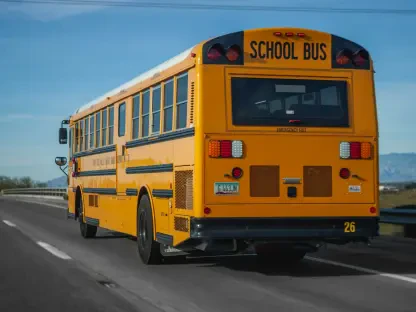Concerns among parents and teachers in Arlington ISD are growing regarding the current student discipline policy. The need for reform is emphasized, as many believe the current Positive Behavioral Interventions and Supports (PBIS) strategy is ineffective given today’s challenges. As these worries mount, the call for a more responsive and modern approach to managing student behavior intensifies, pushing district officials to reconsider and redesign their current methodologies.
Rising Concerns and Calls for Change
Parent and Teacher Frustrations
Parents like Tiffany Manning and numerous teachers have expressed their dissatisfaction with the current discipline policy. Manning points out that behavioral issues with her children were only communicated to her after they had persisted for weeks. This delayed communication has left her feeling out of the loop and increasingly frustrated. Manning, like many other parents, believes that behavioral issues should be addressed as they arise rather than when they become significant problems.
Teachers, on the other hand, feel overwhelmed and unsupported by the administration, especially with the rise in student behavior issues. Many educators are finding it challenging to balance classroom management with their teaching responsibilities. This growing frustration is echoed in Arlington ISD’s most recent staff survey, where numerous teachers voiced their dissatisfaction with the district’s discipline strategies. This dissatisfaction mirrors state and national studies, where teachers often cite increased student behavior problems as a major stressor and a primary reason for leaving their jobs.
The Ineffectiveness of PBIS
The PBIS strategy, in place since 2014, is built on the principle that all children can exhibit proper behavior with the right intervention. However, many believe it does not adequately address student behavior issues given today’s challenges. Over time, the initial excitement surrounding PBIS has waned, largely due to increasing expectations on teachers. Complex lesson plans, piled-up paperwork, and bureaucratic red-tape surrounding behavior referrals have all contributed to the policy’s declining effectiveness.
In addition to these challenges, teachers have noted that the support provided to them under PBIS is often insufficient. With mounting pressures and insufficient resources, teachers find it increasingly difficult to enforce and reinforce PBIS principles within their classrooms. This has led to a growing sense of ineffectiveness and frustration among the staff, who are struggling to manage the rising tide of student behavior issues while still trying to deliver quality education.
The Task Force and Its Findings
Formation and Purpose
In response to these concerns, AISD officials initiated a student behavior task force in spring 2024 to investigate the root causes behind the escalating behavioral issues. The task force’s formation signals the district’s recognition of the need for substantial changes to its current discipline strategies. This comprehensive investigation intends to delve deep into the underlying factors contributing to student misbehavior and assess how effectively the PBIS strategy addresses them.
On November 7, the task force presented their findings to the school board, making efforts to refine and better define “positive behavioral intervention.” The aim is to revamp the decade-old policy, ensuring it is more suited to today’s educational environment. By focusing on the root causes of behavioral issues, the task force hopes to implement changes that not only address immediate concerns but also foster a more supportive and conducive learning environment for the future.
Categorization of Student Behavior Issues
Under the PBIS strategy, student behavior issues are categorized into four severity groups. Group I encompasses minor misbehaviors that are relatively easy to manage. Group II includes more serious or recurring misbehaviors that require closer attention. Group III involves serious disruptions that affect learning or safety. Finally, Group IV includes severe or illegal acts that can result in a student’s removal to an alternative education program. This categorization aims to provide a structured approach to addressing various levels of behavioral issues, with escalating interventions based on the severity and frequency of the behavior.
According to AISD officials, 80% of students do not escalate beyond Group I, while 10-15% stay within Group II. However, the challenge lies in effectively managing and intervening with the remaining percentage of students who fall into Groups III and IV. The task force’s findings highlighted the need for more comprehensive strategies to address these severe cases, ensuring that interventions are timely, appropriate, and supportive. By creating a clearer and more practical framework for handling different levels of misbehavior, the district hopes to improve the overall effectiveness of its discipline policies.
Efforts to Enhance PBIS Implementation
District-Wide Discipline Standards
The task force is working on creating district-wide discipline standards, processes, and resources to enhance PBIS implementation. According to Christi Buell, assistant superintendent of school leadership, the need for practical and visible implementation of PBIS is crucial to make a positive impact on campuses. This involves not only establishing clear guidelines but also ensuring that these guidelines are consistently and effectively applied across all schools in the district.
In addition to setting standards, the task force is focusing on developing processes and resources to support teachers and administrators in implementing PBIS. This includes providing training, creating materials, and establishing support systems that enable educators to better manage student behavior. The goal is to create a cohesive and comprehensive approach to discipline that empowers teachers and administrators to foster a positive learning environment while addressing behavioral issues effectively and proactively.
Teacher Training and Support
Training over the fall focused on having teachers adopt a trauma-informed lens and empathetically address student disruptions. This approach encourages educators to understand the underlying causes of students’ misbehavior, allowing them to respond more effectively and compassionately. Retraining teachers in restorative discipline practices aims to shift the focus from punitive measures to understanding and addressing the root causes of behavior issues, fostering a more supportive and positive classroom environment.
The task force aims to retrain teachers in restorative discipline, emphasizing the importance of empathy and understanding in addressing behavioral issues. By adopting a trauma-informed approach, teachers can better recognize and respond to the factors contributing to student misbehavior. This training also includes strategies for building stronger relationships with students, fostering a sense of trust and respect that can lead to improved behavior and a more positive learning experience.
Challenges and Proposed Solutions
Increased Teacher Workload
Board member Melody Fowler highlighted that teachers’ workload stress has exacerbated due to the pandemic, with students now exhibiting shorter attention spans and more frequent misbehavior, influenced by social media trends like the “devious licks” TikTok challenge. These additional challenges have compounded the difficulties teachers face in managing their classrooms, further emphasizing the need for effective and supportive discipline strategies.
Fowler suggested reallocating resources to programs that could address the behavior issues of chronically misbehaving students. By providing targeted support and interventions for these students, the district can help alleviate some of the pressures on teachers and create a more conducive learning environment for all students. This may include specialized programs, additional staff, and resources that focus on addressing the specific needs of students who exhibit persistent behavior issues.
Importance of Parent-Teacher Communication
The significance of parent-teacher communication was also emphasized, with parents like Manning wanting teachers to inform them earlier about any misbehavior issues. Manning believes that early communication can help parents address behavioral issues before they escalate, allowing for a more collaborative approach to managing student behavior. Clear communication between parents and teachers is essential for ensuring that everyone is on the same page and working towards the same goals.
Parents also want teachers to clearly define the limits of their authority in the classroom. Understanding the boundaries and expectations can help create a more structured and predictable environment for students, reducing the likelihood of misbehavior. By fostering open and honest communication between parents and teachers, the district can create a more supportive and effective approach to discipline that benefits both students and educators.
Positive Outcomes and Future Directions
Decrease in Behavior Referrals
Despite persistent problems, the task force’s efforts have yielded some favorable outcomes, as evidenced by 72% of campuses showing a year-to-date decrease in behavior referrals. This indicates that the ongoing efforts and changes proposed by the task force are beginning to make a positive impact. By focusing on understanding and addressing the root causes of behavior issues, the district is making progress towards creating a more supportive and disciplined educational environment.
These positive outcomes suggest that the district’s approach to reforming its discipline policies is on the right track. Continued efforts to enhance PBIS implementation, provide targeted support for teachers and students, and foster better communication between parents and educators will be crucial in maintaining and building on these improvements. The district’s commitment to creating a more disciplined and supportive educational environment is reflected in the ongoing efforts and proposed changes by the task force.
Commitment to Improvement
In Arlington ISD, a growing number of parents and teachers are expressing concern about the current student discipline policy. Many in the community feel that the existing strategy, Positive Behavioral Interventions and Supports (PBIS), is falling short in addressing the behavioral issues faced by today’s students. They argue that PBIS, while well-intentioned, is outdated and not equipped to handle the complexity of modern challenges in the school environment. These concerns are becoming increasingly urgent, prompting calls for a more effective and contemporary approach to student behavior management. As the push for change gains momentum, district officials are feeling the pressure to reevaluate and overhaul their current disciplinary methods. The goal is to develop a system that is more responsive to the needs of today’s students, one that can effectively address behavioral problems while fostering a positive and supportive educational atmosphere. This growing demand for reform highlights the need for innovative solutions and a commitment to enhancing the overall student experience in Arlington ISD.









